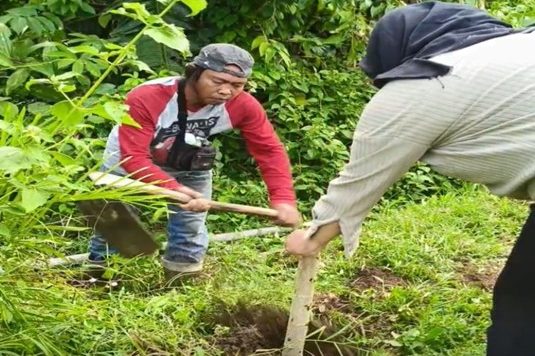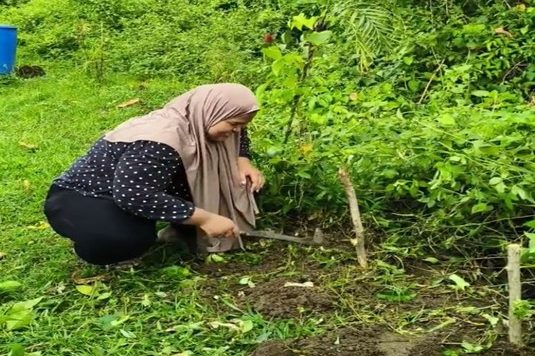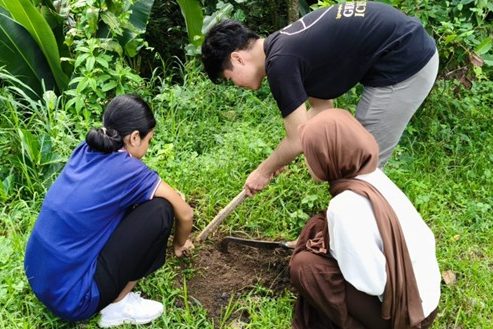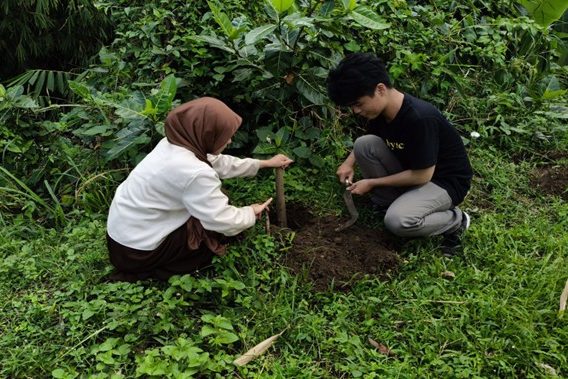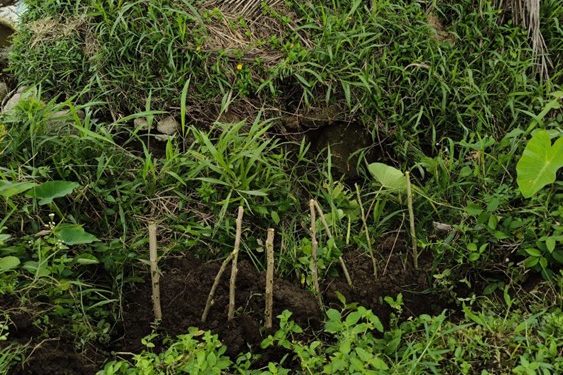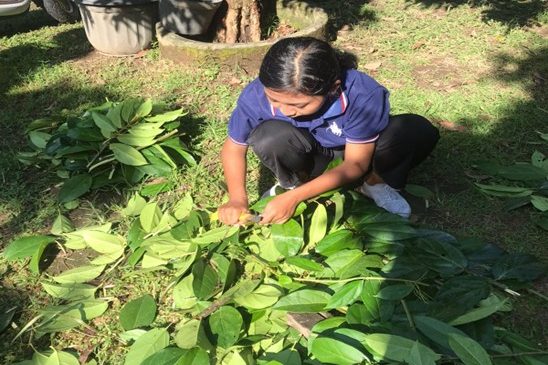On May 12, 2025, students from the Merdeka Belajar Kampus Merdeka program demonstrated their commitment to developing the potential of tourism villages through activities focused on environmental conservation and local food empowerment. This initiative was led by Nurhayati and her team, Mirmastu Lintu Nirmala Wasti, Tiara Syifa Wididevani, and Putri Ramadhanti, with support from Eben Ariesto Purnama Jati and Mazaya Tijani Ulayya, under the supervision of Sukirno, S.Si., M.Sc., Ph.D..
The primary activity involved planting moringa along the riverbanks. This strategic location was chosen to prevent erosion, reinforce the area’s natural boundaries, and create a living fence. Furthermore, the highly nutritious moringa leaves, particularly their protein content, can be processed into vegetables and used as a complementary food source to combat stunting.
In addition, the student team planted black grass jelly seedlings in the Tlatar fruit garden area. The mature grass jelly leaves will serve as raw materials for refreshing and healthy traditional grass jelly drinks, with the aim of bolstering agro-tourism and local culinary offerings in the Kabut Kebonalas area.
This planting initiative garnered considerable support and enthusiasm from local residents, who actively participated in the planting process. This collaboration between students, supervising lecturers, and the village community exemplifies a synergistic approach to building a sustainable, healthy, and self-reliant tourism village.
Through this program, it is envisioned that the Kabut Kebonalas Tourism Village will continue to thrive by prioritizing local values, environmental sustainability, and community food security, thereby contributing to the achievement of the SDGs related to hunger management, poverty reduction, health, and terrestrial ecosystem conservation.

